Aglaonema, commonly known as Chinese Evergreen, is a popular houseplant renowned for its striking foliage, resilience, and air-purifying qualities. With a wide variety of species and cultivars, Aglaonema is cherished for its colorful leaves, ranging from deep green to vibrant shades of silver, pink, and red. This tropical plant is native to the humid rainforests of Southeast Asia, where it thrives in low-light conditions, making it an excellent choice for indoor environments. Let’s explore the characteristics, care tips, and allure of Aglaonema.
Overview of Aglaonema
Aglaonema plants are characterized by their broad, elongated leaves that can grow up to 12 inches long. The leaves come in various colors and patterns, often featuring stunning variegation that adds visual interest to any space. Popular varieties include Aglaonema ‘Silver Queen’, known for its silvery-green leaves, and Aglaonema ‘Red Siam’, which boasts vibrant red and green foliage. The plant’s growth habit can vary from compact and bushy to tall and leggy, depending on the species and growing conditions.
Care and Maintenance
Caring for Aglaonema is relatively simple, making it a great choice for both novice and experienced plant enthusiasts. Here are some essential tips for keeping your Chinese Evergreen healthy and thriving:
Light Requirements
Aglaonema plants prefer indirect light and can tolerate low-light conditions, making them ideal for spaces with less natural light. However, bright, indirect light will enhance their color and promote healthier growth. Direct sunlight should be avoided, as it can scorch the leaves. If you notice your plant becoming leggy or losing its vibrant color, it may be an indication that it needs more light.
Watering
Maintaining the right moisture level is crucial for Aglaonema. Water the plant when the top inch of soil feels dry to the touch. It’s important to keep the soil consistently moist but not soggy, as overwatering can lead to root rot. During the growing season (spring and summer), you may need to water more frequently, while in the fall and winter months, you can reduce watering as the plant’s growth slows.
Humidity
Aglaonema thrives in moderate to high humidity environments, typical of its tropical origins. While it can tolerate average humidity, providing higher humidity will promote healthier growth and vibrant foliage. If you live in a dry climate or during winter months, consider using a humidifier, misting the leaves regularly, or placing the pot on a pebble tray filled with water to enhance humidity.
Soil
A well-draining potting mix is ideal for Aglaonema plants. A standard houseplant potting mix with added perlite or orchid bark can improve drainage and aeration for the roots. The plant prefers slightly acidic to neutral soil (pH 6.0 to 7.0).
Propagation
Propagation of Aglaonema can be done easily through stem cuttings or division. To propagate by cuttings, take a healthy stem cutting with a few leaves and place it in water or directly in soil. If propagating in water, change the water regularly to keep it fresh. Once roots develop, you can transfer the cutting to soil. Division can be done by separating a mature plant into smaller sections, ensuring each section has roots and leaves.
Potential Issues
While Aglaonema plants are generally hardy, they can face some common issues, including pests like mealybugs, spider mites, and aphids. Regularly inspect your plant for signs of infestation, and treat any issues promptly with insecticidal soap or neem oil. Additionally, watch for signs of overwatering, such as yellowing leaves or mushy stems.
Aesthetic Appeal
Aglaonema is prized for its beautiful foliage and versatility in indoor settings. Its unique leaf colors and patterns can add a touch of elegance and sophistication to any room. Whether used as a standalone statement piece, grouped with other houseplants, or incorporated into a decorative display, Aglaonema can enhance the aesthetic of any space.
Benefits of Aglaonema
In addition to its beauty, Aglaonema offers several benefits:
- Air Purification: Like many houseplants, Aglaonema is known for its ability to filter toxins from the air, contributing to improved indoor air quality.
- Low Maintenance: Its resilience and adaptability make it an excellent choice for busy individuals or those new to plant care.

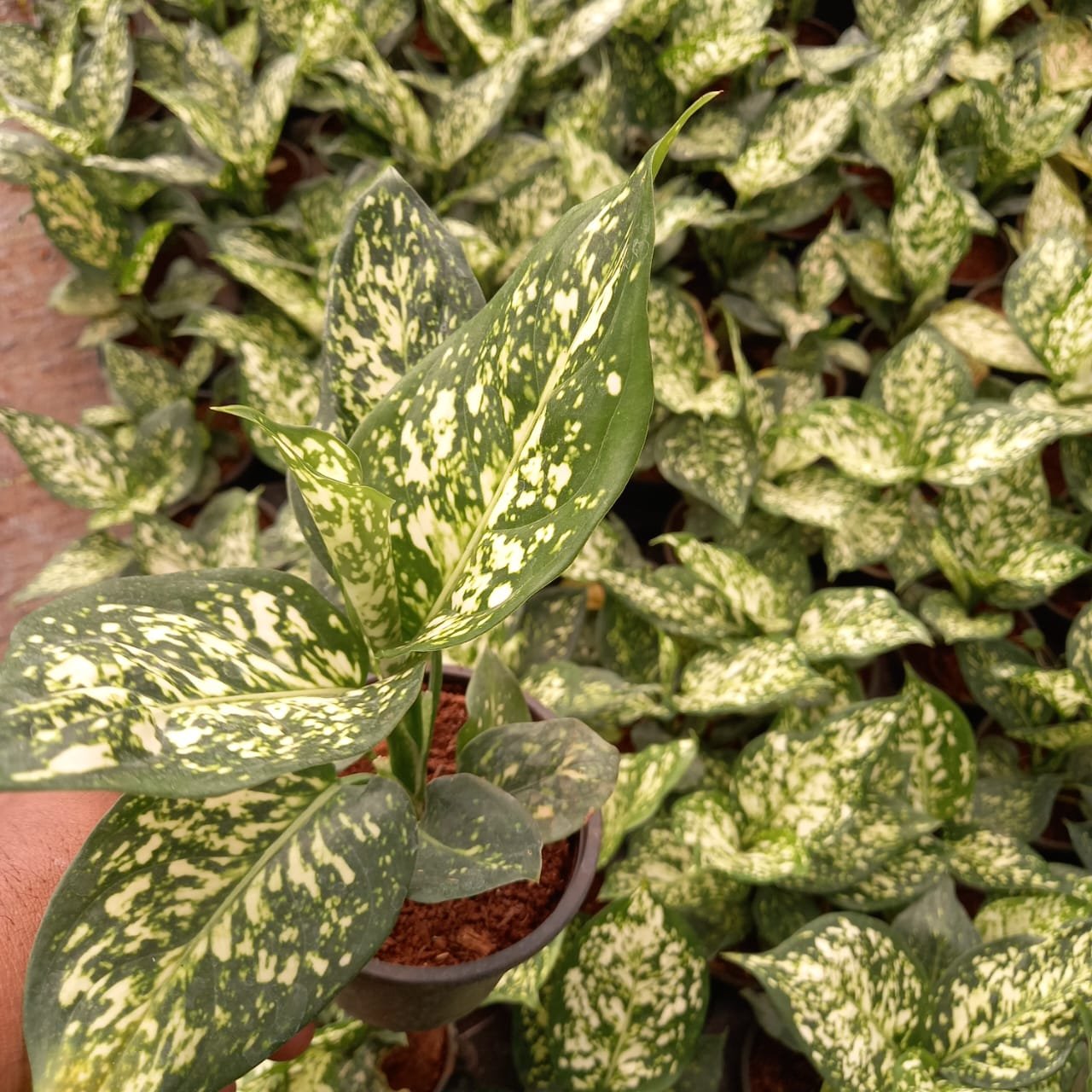
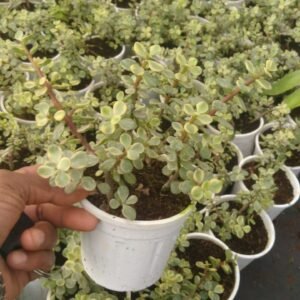
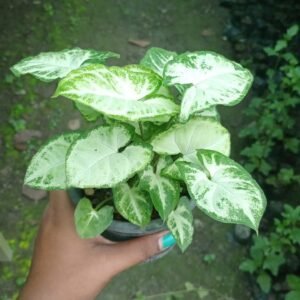
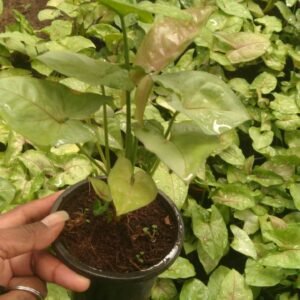
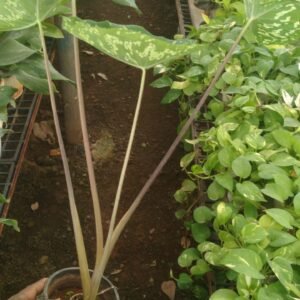
Reviews
There are no reviews yet.